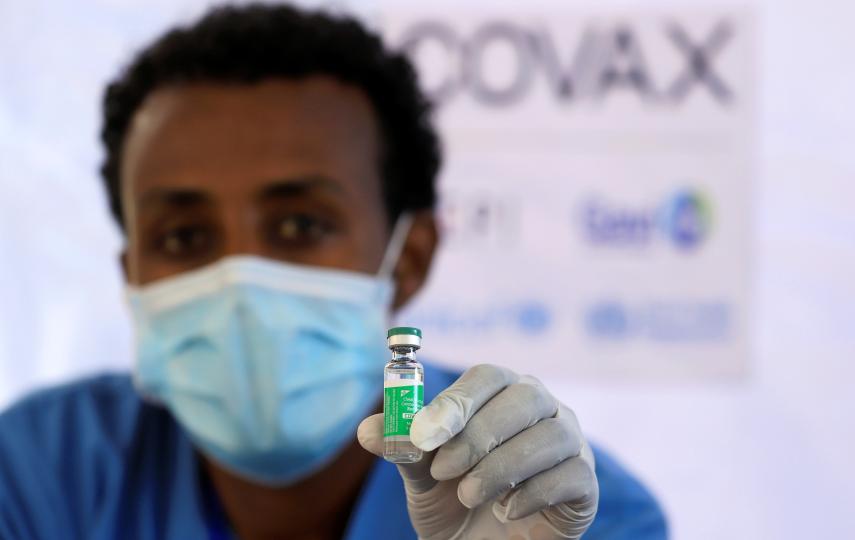From ethical data management to the compounding effects conflict, climate change, and COVID-19 can have on famine risks, the world’s key humanitarian players have a lot to chew on as they head into the UN’s annual Economic and Social Council (ECOSOC) meetings.
Hosted in Geneva (technically, as they will largely be remote), the 23-25 June talks (part of the UN General Assembly) gather hundreds of representatives from member states, UN agencies, NGOs, and the private sector for discussions on the most pressing issues in emergency aid.
This year’s meetings come after a year of rapid increases in humanitarian needs, and amid the largest aid financing shortfall ever seen. That’s according to Development Initiatives’ flagship review of humanitarian trends and spending in 2020, released today.
Last year, needs reached an all-time peak, with 243.8 million people requiring humanitarian assistance across 75 countries in crisis, the report finds. Funding requirements (assessed in a UN-led process) grew by 27 percent to a record $38.8 billion, with donors (public and private) coughing up $30.9 billion. Despite increased needs, UN-led response plans were left at least $18 billion short.* Humanitarian needs due to COVID-19 were even more poorly attended to – just 40 percent of requirements being funded.
This year’s ECOSOC talks come under a general heading of: “Strengthening humanitarian assistance to face the challenges of 2021 and beyond: mobilising respect for international humanitarian law, inclusion, gender, innovation and partnerships.”
The UN platform to improve coordination and effectiveness of humanitarian assistance has been held since 1998, and this year is chaired this year by Swiss diplomat Pascale Baeriswyl.
Baeriswyl, the Swiss permanent representative to the UN, told The New Humanitarian via email that the event would “discuss how best the humanitarian system can continue to learn and adapt to this changing environment and increase its level of ambition to face the challenges of 2021 and beyond, since business as usual is no longer an option”.
The full event programme is here, but we’ve highlighted these key issues to look out for during the coming three days of talks.
The humanitarian implications of COVID-19 will overshadow many of the discussions, with one high-level panel solely dedicated to protection issues related to the pandemic, including vaccine equity and healthcare for humanitarians. The many impacts of COVID-19, and how the humanitarian community should respond, were also discussed at a side event with US-based NGO World Vision, UN agencies, and the Red Cross/Red Crescent Movement on 21 June.
ECOSOC’s development and humanitarian specialists will hold a joint meeting on preventing famine. The high-level event focuses on opportunities to join development and peacebuilding programmes with humanitarian objectives – a.k.a. the nexus. That’s one of two sessions on famine. The other – a side event convened by UN organisations and a handful of NGOs – aims to bring in the perspectives of frontline responders to explore how the intersecting factors of conflict, climate change, and COVID-19 are increasing famine vulnerability.
Innovation, data, and technology are also at the top of the agenda, again as a result of adaptations made during the pandemic. A high-level panel chaired by Switzerland will address opportunities – but also risks – related to data and responsibilities in safe and ethical data management. A recent report from Human RIghts Watch slammed the UN’s refugee agency, UNHCR, for handing over a detailed biometric database of Rohingya refugees to the Myanmar authorities. Another side event – co-hosted by OCHA’s Centre for Humanitarian Data; the UN’s migration agency, IOM; and the International Rescue Committee – will go deeper and explore standards for data coordination and data-sharing.
Anticipatory action, a signature priority of outgoing OCHA chief Mark Lowcock, will also feature prominently. Another one of the high-level panels looks to find ways to advance a system-wide shift in response to climate change – from being more reactive to one of planning for and financing disaster risk reduction and prevention before crises happen. A group of NGOs will also examine the gender perspective of prevention and anticipation.
Localisation remains a key topic for almost any humanitarian policy forum, and this one is no exception. It will be a common undercurrent through many of the discussions, but a side event chaired by Nimo Hassan of the Somali NGO Consortium on 21 June looked specifically at progress to date, especially in light of the pandemic. The continued push to get more flexible funding in the hands of local partners – overlapping with Grand Bargain 2.0 deliberations that took place last week – is one of the key issues this event and others seek to address.
Issues related to children and young people are also highlighted this year. One event, organised by UNICEF and the International Disabilities Alliance, will look at getting more young people with disabilities involved in climate action. Another focuses on the implications of counter-terrorism for children’s rights, and ways to protect them in these contexts. The newly established Global Hub for Education in Emergencies, based in Geneva, will also host a discussion on the disruptions to education during emergencies, historically one of the most underfunded sectors in humanitarian response.
After becoming a focus in 2020, soaring mental health and sexual and reproductive health needs feature again this year. The Netherlands, along with UN organisations, will explore the multisectoral aspects of mental health and psychosocial support for people in emergencies. The Development Initiatives’ report notes that despite the increased vulnerability of women and girls in humanitarian settings due to COVID-19, they are often missing from the data. Meanwhile, an event organised by OCHA and the United Nations Population Fund (UNFPA) delves into efforts to tackle sexual exploitation and abuse, while another event – featuring UN organisations and NGOs, including the African Women and Youth for Development – will discuss the prevention of and response to gender-based violence.
*(This story was corrected on 28 June 2021 to clarify that the shortfall was at least $18 billion for UN-led response plans.)
ja/bp/ag








